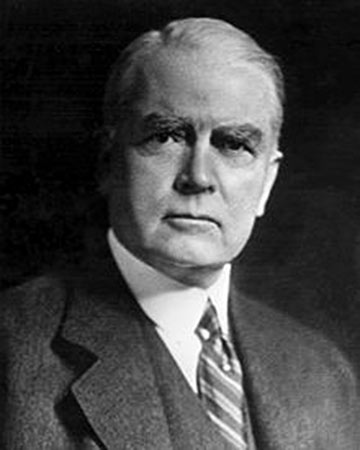University Cites Program as Part of 150th Anniversary Celebration
By Catherine Elvy, Staff Writer As part of its sesquicentennial celebration, Cornell University recently spotlighted the institution's former training program for missionaries on furlough, including the course's ties to a global evangelist.
As part of its sesquicentennial celebration, Cornell University recently spotlighted the institution's former training program for missionaries on furlough, including the course's ties to a global evangelist.In November, the university's official newspaper paid tribute to the Cornell School for Missionaries, which operated from 1930 to 1964. The annual four-week seminar for veteran missionaries offered instruction on crop techniques, community improvement, and the like.
The Cornell Chronicle noted the hands-on program started on the heels of one of the university's initial, major international projects, a plant-improvement initiative at the University of Nanking in China. A pair of Cornell alumni – John Reisner (MS 1914), missionary and dean of Nanking's College of Agriculture, and John Mott (Class of 1888), former general-secretary of the YMCA's International Committee – joined forces to implore the university to launch a short agricultural course for missionaries.
While Cornell's newspaper provided a fascinating snapshot of the pragmatic program of yesteryear, the account of the missionary training efforts also pointed to a slice of the university's little-celebrated spiritual heritage.
Namely, Mott devoted decades of his adventurous life to missionary efforts across the globe, and he served the YMCA in a series of executive capacities.
In 1895, Mott helped launch the World's Student Christian Federation. As its general secretary, he organized student movements in India, China, Japan, Australia, New Zealand, and beyond.
In 1946, Mott received the Nobel Peace Prize for his efforts to create and bolster international Protestant student organizations championing peace.
Interestingly enough, during his undergraduate days at Cornell, Mott heeded a lecture by J. Kynaston Studd that sparked a lifelong passion for sharing the Gospel with students, according to Nobel Prize documents.
The British cricketer, businessman, and Lord Mayor of London said, "Seekest thou great things for thyself? Seek them not. Seek ye first the Kingdom of God."
As for Studd, during his university days he was president of Cambridge Inter-Collegiate Christian Union and he was one of the famed Cambridge Seven missionaries to China.
On the heels of Mott's spiritual encounter, the New York native represented Cornell University's YMCA at the first international, interdenominational student Christian conference. During the 1886 gathering, Mott was one of 100 men who pledged to labor in foreign missions.
Two years later, Mott commenced nearly three decades of service as the national secretary of the Intercollegiate YMCA of the USA and Canada. Likewise, from 1926 to 1937, Mott served as president of the YMCA's World Committee during an era that coincided with the founding of Cornell's missionary training program.
As well, Mott helped form the World Council of Churches in 1948, and his much-touted book, The Evangelization of the World in this Generation, became a Christian slogan in the early 20th century.
As for the missionary furlough program, the Cornell Chronicle noted it was such a hit that the College of Agriculture added a one-year missionary course in 1941.
Much of the training centered on practical lessons in soils, crops, livestock, pest control, and vegetable gardening. Other curriculum covered animal husbandry, plant pathology, agricultural engineering, and nutrition, as well as the social structures of rural communities and the influence of tradition and custom, the newspaper reported.
Despite packed schedules during their stints in Ithaca, the missionaries often squeezed out time to speak at area churches and Grange halls, which served to advance the social and economic causes of rural farms.
According to Mott, social work and evangelism worked hand-in-hand.
In a Christianity Today article published in 2000 (Missions and Ecumenism: John R. Mott), Mark Galli noted Mott's "middle view" in an era when liberals and fundamentalists debated fiercely on the subject:"Evangelism without social work is deficient; social work without evangelism is impotent," Mott said.





